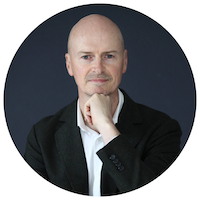[T]here is no conscious integration of Bernhard’s themes or style in my work, although especially Bernhard’s tone of defiance and refusal has given me a sense of freedom in all my work, and perhaps helped me to develop a voice that isn’t similar, but may occasionally veer in that direction. Bernhard’s work has also given me permission, I think, to explore rather extreme forms of human experience and states of mind – illness, death, radical loneliness and a fundamental sense of alienation and displacement, for instance – in a way that may not have been possible had I not read his work. The Wall Street Journal recently referred to the prose in my novel Fathers and Fugitives as »self-annihilating«. What this means I’m not entirely sure, but it is a description that I would think applicable to Bernhard’s prose – sentences that eat themselves as they’re written.
S. J. Naudé: Interview mit Louis Frederic Groß (unveröffentlicht), 3. Februar 2025.

